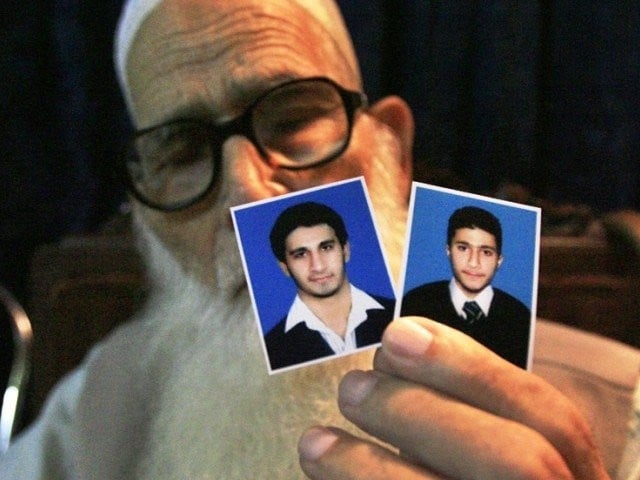
Two brothers were clubbed to death by a mob in Sialkot on suspicion of theft

It has been over nine years since the family of two young brothers, who were clubbed to death by a mob in Sialkot, initiated a legal battle in pursuit of justice for the murder of their sons.
It was August 2010. Dozens of people beat to death twenty-year-old Hafiz Muhammad Mughees Sajjad and sixteen-year-old Mohammad Muneeb Sajjad in the presence of policemen on accusation of theft. Later, according to locals, their bodies were hung upside down at a nearby square in the city.
On the direction of higher authorities, a special judge held a detailed investigation into the matter and wrote in his report that the boys were not robbers or hardened criminals. According to the same report, not a single case of mobile phone theft or robbery was ever reported against them.
The Punjab government took up the matter directing that the trial of the accused involved in the lynching be held in an Anti Terrorism Court. By next year (2011), the trial court had awarded death sentence to seven prime suspects in the lynching case. It acquitted some suspects for lack of evidence. Jail authorities, however, stopped the execution of seven convicted to death after the Supreme Court accepted their appeals against the decision of the Lahore High Court.
"Recently, the convicts moved the Lahore High Court for relaxation in their sentence and the matter has been deferred by the court," says Muhammad Sajjad Butt, the 57-year-old father of the two teenage brothers. "We are still struggling to get justice in this world. However, we have left this matter to God, believing that full justice will be delivered in the afterlife," he tells The News on Sunday.
Sajjad says he and his wife, Fauzia Sajjad, have never forgotten the tragic incident. "Our wounds are still fresh. We remember our young sons every living minute," he says. In the beginning when the case was taken up in the court following a huge public outcry, the family of the perpetrators had approached them. "They offered us money as compensation as well as an offer to settle us abroad urging us to compromise but we did not."
"We had three children - two sons and one daughter. In this horrifying incident we lost both of our sons. We are left with only their memories," he says overpowered by grief.
"Our children were not guilty of such a crime that they were beaten, tortured (to death) with sticks and iron rods in a way that left their faces unrecognisable," says their father. "We know how the system is being run in this country. Justice is always delayed."
The incident was a horrifying act of mob violence stirred by suspicion. "Until and unless the government takes stern action against the instigators and actors of this mob violence, no one can get justice in this country."
"The government and the people forget these issues after a while but we - the families of those innocent children, who became victims of mob brutality - cannot. Never," he says.
Fighting such cases in the court is a long battle and Butt says after some time the government does not care at all. For grieved lower middle class families it is a double edge issue, he adds.
"On one hand, we do not get justice and we have to raise our voices to get justice and on the other, our reputation is also damaged as many sections of society see us with suspicion," he says.